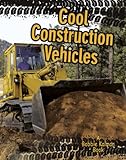 Today's post on literacy comes from Colleen Felz, the Homeschooling Coach. Find her homeschooling tips & curriculum ideas as well as stories about the joys & trials of home education at her blog, Homeschooling Coach. In her sister blog, Living as a mom, read stories about her life as a Christian wife and mother. Here are her thoughts on literacy...and beyond.
Today's post on literacy comes from Colleen Felz, the Homeschooling Coach. Find her homeschooling tips & curriculum ideas as well as stories about the joys & trials of home education at her blog, Homeschooling Coach. In her sister blog, Living as a mom, read stories about her life as a Christian wife and mother. Here are her thoughts on literacy...and beyond.Becoming a literate person is a big undertaking, and the early years are the time to lay a firm foundation. Throughout this series on emergent literacy you have read about some specific skills needed to read and write well and learned that it takes lots of practice to master those skills. In this post I'd like to sum it all up.
The most important thing that you can do to help your child learn to read and write is to simply reading good literature to your child from birth through the teen years. There is so much that you share with your child during those special times spent reading together. Your oral reading helps your child hear the rhythm of the language and the intonation used in reading. You also serve as a model for what expert readers do and how they solve problems when they read. Since your child naturally wants to mimic you in the early years, reading aloud is a great time to inadvertently (or even intentionally) teach your child about reading.
What behaviors are you modeling for your child as an expert reader? Just think of all that you do when you are reading aloud. If you misread a word in a sentence, you correct yourself when you realize that the word did not make sense, and you use the context to figure out the meaning of certain words. You make predictions as you read, too. You even reread excellent books because you get something new from those books each time you read them. The next time you read aloud, think about all that you actually do when you read.
As you model these skills, you can also explicitly share them with your child when you read aloud to him/her. When you and your little one snuggle together and read, talk about the book and ask questions.
"Those words rhyme."
"I love this author (book)."
"I wonder what will happen next."
"Have you ever felt like that?"
I cannot stress enough how important it is to read to your child . The time you invest in reading aloud to your child is time well spent. Enjoy it!
What are some of your favorite books to read with your little ones?











